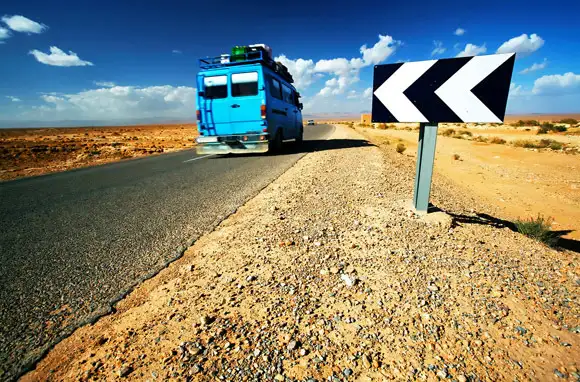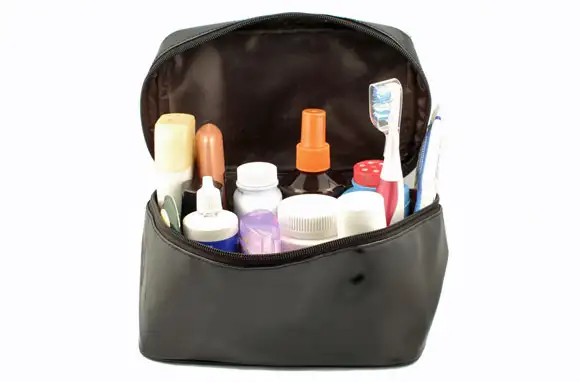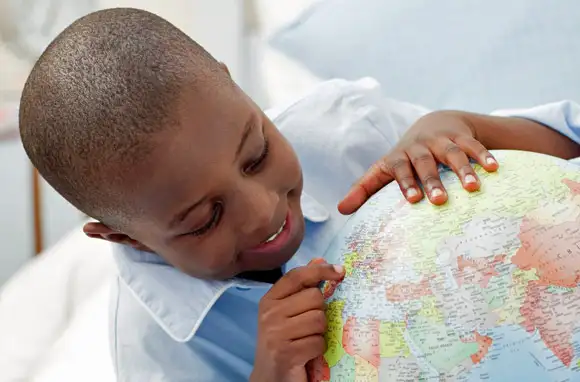
Molly Feltner, a former senior editor at SmarterTravel, is the communications officer of Gorilla Doctors, an organization dedicated to providing hands-on medical care to sick and injured mountain gorillas living in the national parks of Rwanda, Uganda, and the Democratic Republic of Congo (DRC). Learn more at GorillaDoctors.org and Facebook.com/GorillaDoctors.
For many Americans, Africa is the final frontier. Sure, it’s home to amazing wildlife and natural wonders—but it’s also a scary place fraught with war, disease, and poverty. At least that’s what many of my friends and relatives told me when I announced in early 2009 that I was leaving SmarterTravel to move there and work for a nonprofit organization. Now that I’m back in the U.S., I can’t stop telling my friends about all the great travel experiences they’re missing out on by not visiting Africa.
If you’re thinking about a trip to the continent, I want to assure you that traveling there is not as challenging as you might think. I trust you’re sensible enough to do your research about visas, tour companies, required vaccines, and other basics, but there a few things important things you might not find out on your own. Here are 10 things I wish I’d known before my first trip to Africa.
Image Gallery

Don't Be Afraid
I'll admit it: Before traveling to Africa for the first time, I was afraid. Afraid of being victimized by criminals, of becoming ill with some hideous disease, of being alone and surrounded by throngs of people whose culture and language I didn't understand. But when I arrived, I realized most of my fears were unfounded. Taking the same precautions you would take while traveling anywhere will help you avoid many problems in Africa. I found that most individuals I encountered were friendly and willing to help when I was in need. Once, when I broke the chain on my bike while cycling in a rural area, a local bike repairman (apparently tipped off by some kids) came out of nowhere and brought me a new chain. We didn't have any common language, but my bike and I were up and running again in minutes.

Don't Be Afraid
I'll admit it: Before traveling to Africa for the first time, I was afraid. Afraid of being victimized by criminals, of becoming ill with some hideous disease, of being alone and surrounded by throngs of people whose culture and language I didn't understand. But when I arrived, I realized most of my fears were unfounded. Taking the same precautions you would take while traveling anywhere will help you avoid many problems in Africa. I found that most individuals I encountered were friendly and willing to help when I was in need. Once, when I broke the chain on my bike while cycling in a rural area, a local bike repairman (apparently tipped off by some kids) came out of nowhere and brought me a new chain. We didn't have any common language, but my bike and I were up and running again in minutes.

Bring The Right Forms Of Payment
Try to prepay for as much of your trip as possible, because making large payments in Africa can be difficult. Traveler's checks are virtually worthless, and even major hotels and restaurants may not take credit cards. ATMs are fairly common in major cities and towns, but many only accept Visa cards. Even then, it's not uncommon for machines to run out of cash for days at a time. Carrying lots of cash around can be nerve-wracking, but I usually have $1,000 available (not necessarily on my person) whenever I travel there. In all my travels around Africa, I've never lost any, and that cash helped me get through numerous tough spots in which no working ATMs were available.

Bring U.S. Dollars, But Only the New Bills
Most merchants, from owners of fancy safari lodges to kids hawking gum and candy on the street, are happy to be paid in U.S. dollars. But not all dollar bills are equal. Because of fears over counterfeit cash, most people only take bills printed in 2006 or later. Bills with tears or markings also won't pass muster. In addition, keep in mind that higher-denomination bills get a better exchange rate than smaller denominations. You'll exasperate your bank teller, but make him or her sort through all the cash in the vault until he gives you only the recent, clean bills you need. It's far less painful than being stuck in Africa with a wallet full of money you can't spend.

Build Flexibility into Your Itinerary
I recommend spending no less than three weeks in Africa, not only because there's so much to see but also because there's a good chance you'll encounter some kind of delay that could wreck your plans. Internal flights are often cancelled or delayed, flooding and bush fires can make roads impassable, and even well-maintained safari vehicles can break down under difficult conditions. If you have to fly or travel large distances between locations, it's wise to have a buffer day or two in between to allow for such delays.

Learn to Drive a Stick Shift
Renting a 4x4 and driving it around yourself can be one of the most enjoyable and convenient ways to explore rural Africa. However, you'd better be able to drive a stick shift, because automatic transmissions are a rarity in Africa. I've met a few people who actually learned to drive a stick in Africa, but I wouldn't recommend it. Stalling out when a herd of angry elephants is charging (which may or may not have happened to me) is not a fun position in which to find yourself.

Go Ahead, Take Public Transportation
When I made my first trip to Africa in 2008, I found the idea of using public transportation terrifying. But after paying $800 for a private car and driver to chauffeur me around for a week, I got over it. Most cities and major towns in eastern and southern Africa have some kind of first- or business-class bus service that's cheap and reasonably comfortable. Luggage space is often tight, so I usually buy two seats, one for me and one for my bag.

Bring All The Toiletries You Will Need
In most other parts of the world, if you run out contact solution or some other important toiletry, you can usually find a replacement product in local stores or pharmacies. In Africa, unless you're in a city with a large population of expats, you may have a very hard time finding certain toiletries. And if you do find them, they may cost 10-20 times the price you'd pay back home. I find this is especially the case with hair products, contact lens solution, sun block, and makeup.

Don't Give Handouts
You may be tempted to give treats or even money to underprivileged children you encounter. While your intentions are good, these types of handouts have unforeseen consequences. That cute little tyke you gave a lollipop to might be beaten up by older kids as soon as you turn your turn back. Rather than attend school, a handicapped child might be forced to beg on the roadside near a tourist attraction because his parents know guilt-ridden foreigners will give him money. If you want to give back in Africa, bring useful items like school supplies and donate them directly to a school or charity that will make sure the gifts are used properly.

Be A Photographer, Not A Member Of The Paparazzi
You know those classic photographs you dream about taking—the Massai warrior decked out in colorful beads, the women in print dresses balancing baskets on their heads. You're not going to get them snapping from a moving safari car or hiding in the bushes with a long lens. It's also extremely disrespectful to photograph anyone without their consent. To get great people photographs and avoid making offense, interact with your photo subject before shooting. Sometimes, a smile and a camera-clicking hand gesture is all you need to earn permission.

Avoid Blowing Up Your Electronics
During my three years in Africa, I've seen multiple phones, camera batteries, and even a fish tank blow up during the power surges that are a daily fact of life on much of the continent. To keep your expensive electronics safe, I recommend using a surge protector plugged into a power transformer. While it's not always possible to find such hookups, many hotels have transformers in their offices where guests can charge up their camera batteries and phones.
More From Smartertravel:
We hand-pick everything we recommend and select items through testing and reviews. Some products are sent to us free of charge with no incentive to offer a favorable review. We offer our unbiased opinions and do not accept compensation to review products. All items are in stock and prices are accurate at the time of publication. If you buy something through our links, we may earn a commission.
Related
Top Fares From Columbus, OH
Today's Top Travel Deals
Brought to you by ShermansTravel
Shop and Save with Country Inns...
Patricia Magaña
 Hotel & Lodging Deals
Hotel & Lodging Deals
$229 -- Chicago: Discounted Rates and...
Francesca Miele
 Hotel & Lodging Deals
$229+
Hotel & Lodging Deals
$229+
$188 -- Honolulu: Save on Oceanview...
Abigail Lamay
 Hotel & Lodging Deals
$188+
Hotel & Lodging Deals
$188+



